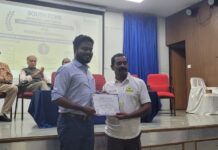Exams are an inevitable part of studying and no one likes to take them. There’s a lot of stress they bring along with strenuous study schedules for students. Those appearing in exams might get a lot of advice from everyone, but these should be accompanied by some strategies to lower stress and make exams less scary.
The followings are some efficient revision techniques and study schedules for an exam month:
- Create a schedule: The most important is planning revision and assessment time. Make a study plan that includes all the topics you need to cover before the exam. Break down your study sessions into manageable chunks and allocate specific times for each topic. Mark the times you will be revising based on your most focused part of the day (analyse properly).
- Prioritise: Focus on the most important topics first. Make a list of the topics you need to cover and prioritize them based on their importance and difficulty level. You can rate the topics that require your attention the most based on the previous scores.
- Set realistic goals: Set achievable goals for each study session. Make sure that the goals are specific and measurable. Missing your daily targets on a regular basis can be a little demotivating. So, dividing the number of revision topics according to the time previously spent will help you set daily milestones.
- Practice regularly: Practice regularly to improve your understanding of the material. Solve problems and answer questions related to the topics you’re studying. Keep your previous scores and the mistakes made in the previous attempts with you for the precise practice required in that hour.
- Use active learning strategies: Use active learning strategies such as summarizing, questioning, and self-testing to reinforce your understanding of the material.
- Take breaks: Take short breaks between study sessions to recharge your brain. You can take a walk, do some stretching, or simply rest. Exercise improves memory and focus. Exercising before performing a mental task significantly boosts your performance.
- Stay organized: Organize and make your learning materials accessible. You’ll be able to focus and save time by doing this. Studying methods should be personalized according to your requirements. Using a calendar assists you in visually looking at your exam dates and scheduling your preparation.
- Avoid distractions: Minimize distractions such as social media, TV, or phone notifications while studying. Fewer distractions, more concentration. Incoming notifications disrupt focus, and you end up wasting a lot of precious time.
- Get enough rest: Get enough rest and sleep. Avoid pulling all-nighters as lack of sleep can negatively affect your concentration and memory. An uninterrupted sleep of at least six hours is necessary to focus, recall and apply large volumes of information.
- Seek help: If you’re struggling with a topic or concept, seek help from your teacher or tutor.
Being stressed can put a big strain on your ability to stay focused. Remember, consistent and focused effort is key to success in any exam.
Best of luck!
Author : Venkat Phanikiran, Chief Academic Officer, Extramarks Education
Also Read: 5 Hard lessons for E-commerce entrepreneurs
This year Educate yourself and develop your career with EasyShiksha






































































